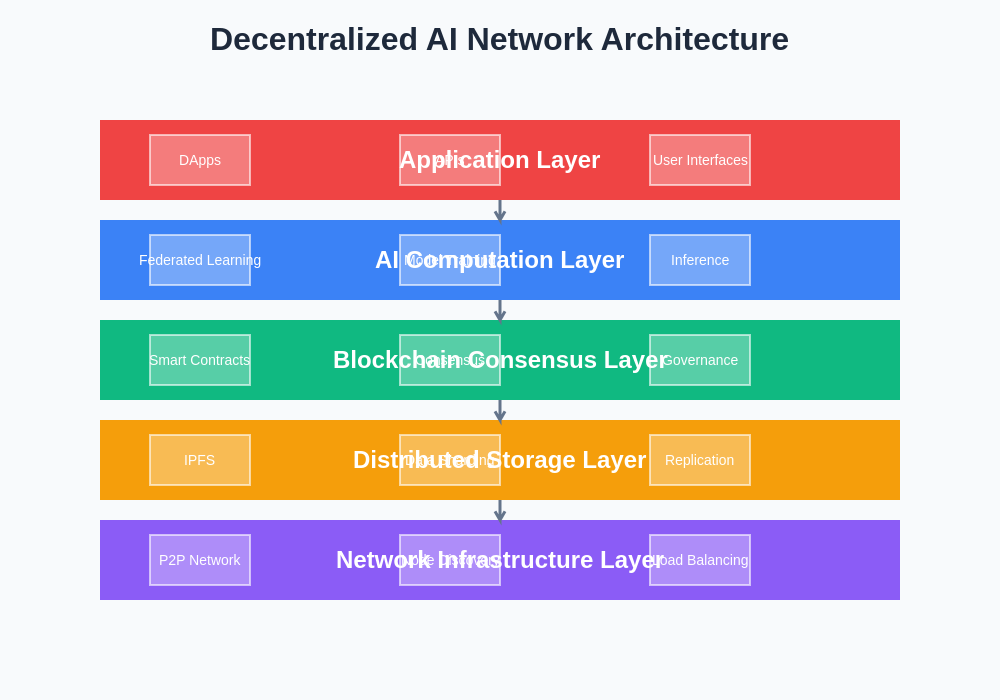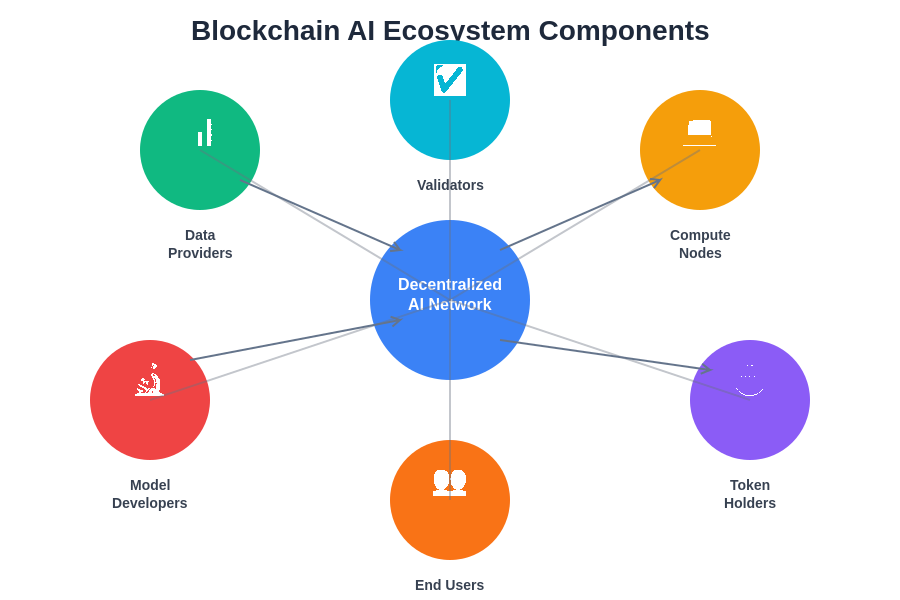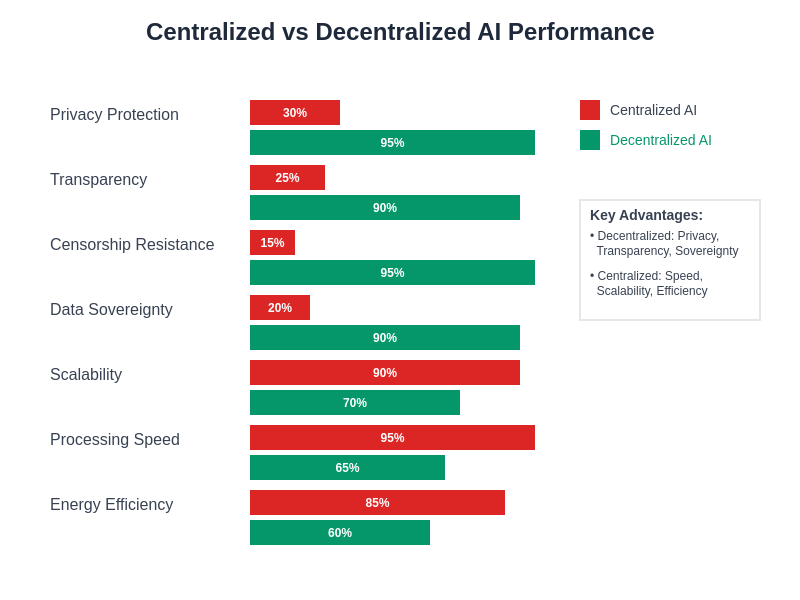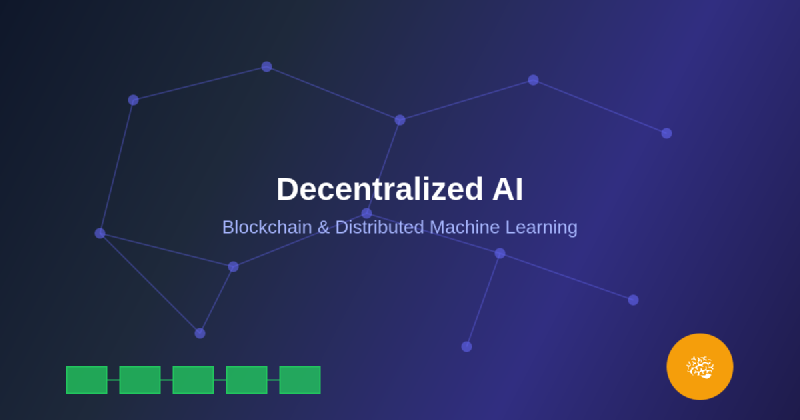The intersection of blockchain technology and artificial intelligence represents one of the most transformative developments in modern technology, creating unprecedented opportunities for decentralized machine learning systems that prioritize privacy, transparency, and democratic governance. This revolutionary convergence is fundamentally reshaping how we approach AI development, deployment, and governance, moving away from centralized models controlled by tech giants toward distributed networks that empower individuals and communities while maintaining the highest standards of security and performance.
The emergence of decentralized AI represents a paradigm shift that addresses many of the critical challenges facing traditional centralized AI systems, including data privacy concerns, algorithmic bias, monopolistic control, and lack of transparency in decision-making processes. By leveraging blockchain’s inherent properties of immutability, transparency, and decentralization, these systems create new possibilities for collaborative AI development that respects user privacy while enabling unprecedented levels of innovation and accessibility.
Stay updated with the latest AI trends to understand how decentralized technologies are revolutionizing the artificial intelligence landscape and creating new opportunities for innovation and collaboration. The fusion of blockchain and AI technologies is creating entirely new categories of applications that were previously impossible under centralized architectures, opening doors to more equitable and transparent AI systems.
Understanding Decentralized AI Architecture
Decentralized AI systems fundamentally differ from traditional centralized approaches by distributing computational resources, data storage, and decision-making processes across multiple nodes in a network rather than concentrating these functions within single organizations or data centers. This distributed architecture leverages blockchain technology to coordinate activities, validate computations, and maintain consensus across the network while ensuring that no single entity can control or manipulate the entire system.
The architectural foundation of decentralized AI systems typically involves multiple layers of functionality, including a blockchain layer for consensus and governance, a distributed storage layer for data management, a computation layer for machine learning operations, and an application layer for user interactions. Each layer serves specific functions while maintaining interoperability with other components, creating a robust ecosystem that can scale efficiently while preserving security and decentralization principles.
The integration of smart contracts within these architectures enables automated execution of complex protocols for data sharing, model training, and reward distribution without requiring trusted intermediaries. These smart contracts can encode sophisticated algorithms for federated learning, privacy-preserving computations, and incentive mechanisms that encourage participation while protecting individual privacy and intellectual property rights.
Blockchain-Powered Machine Learning Networks
The implementation of machine learning algorithms within blockchain networks has created entirely new paradigms for collaborative AI development that transcend traditional organizational boundaries. These networks enable multiple parties to contribute computational resources, data, and expertise toward training sophisticated AI models without revealing sensitive information or relinquishing control over their proprietary assets.
Blockchain-powered machine learning networks utilize various consensus mechanisms specifically designed for AI workloads, including proof-of-learning protocols that validate the quality and authenticity of training contributions, proof-of-inference systems that verify the accuracy of model predictions, and hybrid consensus mechanisms that balance computational efficiency with security requirements. These specialized consensus algorithms ensure that the network maintains integrity while incentivizing high-quality participation.
Explore advanced AI capabilities with Claude to understand how sophisticated reasoning and analysis can be integrated into decentralized systems for enhanced performance and reliability. The combination of blockchain infrastructure with advanced AI capabilities creates powerful platforms for developing next-generation applications that prioritize both performance and decentralization.
The economic models underlying these networks often incorporate tokenization mechanisms that create sustainable incentive structures for long-term participation and contribution. Participants can earn tokens for providing computational resources, contributing high-quality training data, validating model outputs, or developing innovative algorithms that benefit the entire network. These token-based economies create self-sustaining ecosystems that can evolve and improve over time without centralized coordination.
Federated Learning and Privacy Preservation
Federated learning represents one of the most promising applications of decentralized AI, enabling multiple parties to collaboratively train machine learning models without sharing raw data or compromising privacy. This approach is particularly valuable in industries such as healthcare, finance, and telecommunications, where data privacy regulations and competitive considerations prevent traditional centralized training approaches while still requiring sophisticated AI capabilities.
The integration of blockchain technology into federated learning systems provides additional layers of security, transparency, and accountability that address many of the challenges associated with traditional federated learning implementations. Blockchain-based federated learning systems can maintain immutable records of training contributions, implement sophisticated privacy-preserving techniques such as differential privacy and secure multi-party computation, and ensure fair compensation for participants based on the quality and quantity of their contributions.
Advanced cryptographic techniques such as homomorphic encryption, zero-knowledge proofs, and secure aggregation protocols enable these systems to perform complex computations on encrypted data while maintaining mathematical guarantees of privacy preservation. These techniques ensure that sensitive information never leaves its original location while still enabling the development of highly accurate and robust AI models that benefit from diverse data sources and perspectives.
Distributed Data Marketplaces and AI Governance
Decentralized AI systems are creating new paradigms for data monetization and AI governance that empower individual users and organizations to maintain control over their data while participating in collaborative AI development. Distributed data marketplaces built on blockchain technology enable data owners to selectively share specific aspects of their information with AI training processes while maintaining granular control over usage rights, privacy settings, and compensation terms.

These marketplaces implement sophisticated governance mechanisms that enable stakeholders to vote on important decisions regarding model development, ethical guidelines, data usage policies, and reward distribution. Such democratic governance structures ensure that decentralized AI systems evolve in ways that reflect the interests and values of their diverse participant communities rather than the narrow interests of centralized authorities.
The governance frameworks implemented in decentralized AI systems often incorporate multi-stakeholder decision-making processes that balance the interests of data contributors, model developers, computational resource providers, and end users. These frameworks utilize voting mechanisms, reputation systems, and economic incentives to encourage responsible behavior while preventing malicious actors from undermining system integrity or exploiting other participants.
Smart Contracts and Automated AI Operations
Smart contracts serve as the foundational infrastructure for automating complex operations within decentralized AI systems, enabling sophisticated protocols for data sharing, model training, validation, and deployment without requiring trusted intermediaries or manual oversight. These automated systems can execute complex multi-party agreements, enforce privacy constraints, distribute rewards, and coordinate activities across large networks of participants with mathematical precision and transparency.
The programmable nature of smart contracts enables the implementation of sophisticated algorithms for dynamic resource allocation, adaptive learning protocols, and automated quality assurance that can respond to changing network conditions and participant behavior in real-time. These capabilities create highly efficient and resilient systems that can scale to accommodate large numbers of participants while maintaining high standards of performance and security.
Advanced smart contract systems can implement complex machine learning algorithms directly on-chain, enabling decentralized inference, model validation, and even limited training operations without requiring off-chain computation. While computational limitations currently restrict the complexity of on-chain AI operations, ongoing developments in blockchain scalability and specialized AI-focused blockchain architectures are rapidly expanding these possibilities.
Discover comprehensive AI research capabilities with Perplexity to stay informed about the latest developments in decentralized AI technologies and their potential applications across various industries and use cases. The rapid pace of innovation in this space requires continuous learning and adaptation to fully leverage emerging opportunities.
Tokenization and Incentive Mechanisms
The tokenization of AI resources, data, and services within decentralized systems creates powerful economic incentives that drive participation, innovation, and quality improvement while ensuring fair compensation for all contributors. These token economies implement sophisticated mechanisms for valuing different types of contributions, from raw computational power and data quality to algorithm innovation and network maintenance activities.
Token-based incentive systems often incorporate reputation mechanisms that track the historical performance and reliability of participants, enabling the network to automatically adjust rewards and responsibilities based on demonstrated competence and trustworthiness. These reputation systems help prevent malicious behavior while encouraging high-quality contributions that benefit the entire network ecosystem.
The design of tokenomics within decentralized AI systems requires careful consideration of various economic factors, including inflation rates, staking mechanisms, slashing conditions for malicious behavior, and long-term sustainability models. Well-designed token economies can create positive feedback loops that attract high-quality participants while funding ongoing development and improvement of the underlying infrastructure.
Interoperability and Cross-Chain AI
The development of interoperability protocols enables decentralized AI systems to operate across multiple blockchain networks, creating larger and more diverse ecosystems that can leverage the unique strengths of different platforms while maintaining seamless user experiences. Cross-chain AI systems can access larger pools of data and computational resources while providing users with greater flexibility in choosing platforms that best meet their specific requirements and preferences.
Interoperability solutions often implement sophisticated bridging mechanisms that enable secure transfer of tokens, data, and computational results between different blockchain networks while maintaining the security and decentralization properties of each individual chain. These bridges utilize various cryptographic techniques and consensus mechanisms to ensure that cross-chain operations maintain the same level of security and reliability as native operations.

The development of standardized protocols for cross-chain AI operations is enabling the creation of more sophisticated applications that can leverage specialized capabilities from multiple networks simultaneously. These standards facilitate the development of complex AI workflows that might utilize privacy-focused chains for sensitive data processing, high-throughput chains for intensive computations, and governance-focused chains for decision-making processes.
Security and Trust in Distributed Systems
Security considerations in decentralized AI systems encompass multiple dimensions, including cryptographic protection of data and models, consensus security against various attack vectors, privacy preservation during computation, and protection against adversarial inputs and outputs. These systems must maintain security while operating in environments where participants may have conflicting interests and where traditional trust relationships do not exist.
The distributed nature of these systems provides inherent resilience against many types of attacks that can compromise centralized systems, including single points of failure, data breaches, and censorship attempts. However, decentralized systems also face unique security challenges, such as coordination attacks, economic manipulation, and the difficulty of implementing updates and security patches across distributed networks.
Advanced security mechanisms implemented in decentralized AI systems often include multi-party computation protocols that enable secure collaboration without revealing sensitive information, zero-knowledge proof systems that enable verification of computations without exposing underlying data, and Byzantine fault tolerance algorithms that maintain system operation even when significant portions of the network behave maliciously or experience failures.
Scalability and Performance Optimization
Scalability represents one of the most significant technical challenges facing decentralized AI systems, as blockchain networks traditionally struggle to match the throughput and latency characteristics of centralized systems while maintaining decentralization and security properties. However, ongoing developments in blockchain scalability solutions, including sharding, layer-2 protocols, and specialized AI-focused blockchain architectures, are rapidly addressing these limitations.
Layer-2 scaling solutions enable decentralized AI systems to achieve high throughput for AI operations while maintaining the security and decentralization benefits of underlying blockchain networks. These solutions often implement optimistic or zero-knowledge rollup mechanisms that can process thousands of AI operations off-chain while providing cryptographic proofs of correctness to the main chain.

Sharding techniques enable blockchain networks to process multiple AI workloads in parallel across different network segments, dramatically increasing overall system throughput while maintaining global consensus and interoperability. Advanced sharding implementations can dynamically allocate resources based on demand and can implement cross-shard communication protocols that enable complex AI workflows spanning multiple network segments.
Real-World Applications and Use Cases
Decentralized AI systems are finding practical applications across numerous industries and use cases, from healthcare and finance to supply chain management and creative industries. In healthcare, decentralized AI enables collaborative research and model development while maintaining strict patient privacy protections and regulatory compliance requirements. Hospitals and research institutions can contribute to large-scale AI training efforts without sharing sensitive patient data or violating privacy regulations.
Financial services applications of decentralized AI include fraud detection systems that learn from transaction patterns across multiple institutions without revealing proprietary information, credit scoring models that incorporate diverse data sources while protecting individual privacy, and automated trading systems that can access market intelligence from multiple sources while maintaining competitive advantages.
Supply chain applications leverage decentralized AI to create transparent and auditable tracking systems that can predict disruptions, optimize logistics, and verify product authenticity while protecting sensitive business information. These systems enable collaboration between competitors and partners while maintaining necessary confidentiality and competitive positioning.
Creative industries are exploring decentralized AI for content generation, intellectual property protection, and fair compensation systems that ensure artists and creators receive appropriate recognition and payment for their contributions to AI training datasets. These applications often incorporate NFT technologies and creative commons licensing mechanisms to balance open collaboration with creator rights.
Regulatory Considerations and Compliance
The regulatory landscape for decentralized AI systems remains complex and evolving, with different jurisdictions taking varying approaches to blockchain technology, artificial intelligence, and data privacy requirements. Decentralized AI systems must navigate multiple overlapping regulatory frameworks while maintaining their core properties of decentralization and transparency.
Data protection regulations such as GDPR present particular challenges for decentralized systems, as the distributed nature of these networks can complicate traditional notions of data controllers and processors. However, privacy-preserving techniques and careful system design can enable compliance with strict data protection requirements while maintaining the benefits of decentralization.
Financial regulations may apply to token-based incentive systems and data marketplaces, requiring careful consideration of securities laws, anti-money laundering requirements, and financial services regulations. Many projects implement governance tokens and utility tokens in ways designed to avoid classification as securities while still providing effective incentive mechanisms.
Future Developments and Industry Evolution
The future of decentralized AI promises continued innovation in areas such as quantum-resistant security mechanisms, advanced privacy preservation techniques, more sophisticated governance frameworks, and improved interoperability between different systems and platforms. These developments will enable more complex and capable decentralized AI applications while addressing current limitations and challenges.
The integration of emerging technologies such as quantum computing, neuromorphic processors, and advanced cryptographic techniques will likely create new possibilities for decentralized AI systems that exceed the capabilities of current centralized approaches. These technological advances may enable fully decentralized training of extremely large models while maintaining privacy and efficiency requirements.
The evolution of regulatory frameworks specifically designed for decentralized systems will likely provide greater clarity and certainty for developers and participants while ensuring appropriate protections for users and society. These frameworks may incorporate novel approaches to governance and accountability that leverage the unique properties of decentralized systems.
The continued development of user-friendly interfaces and development tools will likely accelerate adoption of decentralized AI systems by making these technologies accessible to broader audiences beyond specialized technical communities. This democratization of access will enable more diverse participation and innovation within decentralized AI ecosystems.
The convergence of decentralized AI with other emerging technologies such as the Internet of Things, augmented reality, and autonomous systems will create new categories of applications that require the privacy, transparency, and decentralization properties that only decentralized AI systems can provide. These applications will likely drive further innovation and adoption across multiple industries and use cases.
Disclaimer
This article is for informational purposes only and does not constitute financial, legal, or technical advice. The views expressed are based on current understanding of decentralized AI technologies and their potential applications. Readers should conduct their own research and consult with appropriate professionals before making decisions related to blockchain technologies, artificial intelligence systems, or cryptocurrency investments. The regulatory landscape for decentralized technologies continues to evolve, and compliance requirements may vary by jurisdiction and specific use case.
